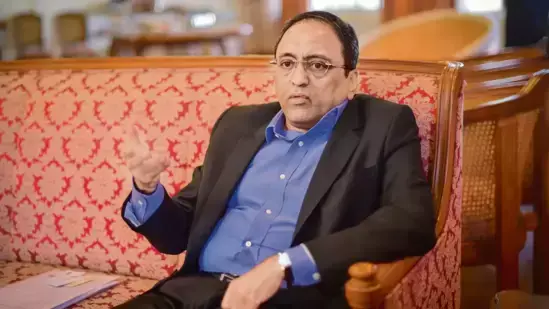
If You Ask an IT Employee to Come to Office, He Says ‘Bye’: L&T Chairman
The debate on work-life balance has been raging on for quite some time now, with many experts weighing in on the pros and cons of working from home versus going to the office. Recently, L&T Chairman SN Subrahmanyan sparked a lively discussion when he made some candid remarks about the changing nature of work and the expectations of employees. In an interview, Subrahmanyan shared his thoughts on the subject, revealing some interesting insights into the minds of IT employees.
According to Subrahmanyan, the expectations of employees have undergone a significant shift over the years. “When I joined L&T in 1983, my boss said, if you’re from Chennai, you go to Delhi and work,” he said. “Today, if you ask an IT employee to come to the office and work, he says ‘bye’ (he resigns),” Subrahmanyan added. These remarks have sent shockwaves through the business community, with many interpreting them as a reflection of the changing attitudes towards work and the growing desire for flexibility.
Subrahmanyan’s comments have also sparked a debate about the role of technology in enabling remote work. With the advent of digital tools and collaboration platforms, it has become easier than ever for employees to work from anywhere, at any time. This shift has been driven by the increasing demands of modern employees, who expect greater flexibility and work-life balance. As a result, many companies are now rethinking their traditional office culture and embracing a more flexible approach to work.
The L&T Chairman’s remarks have also raised questions about the impact of long working hours on employee well-being. In recent years, there has been a growing awareness of the importance of work-life balance and the need to prioritize employee well-being. The fact that Subrahmanyan himself has been criticized for his 90-hour workweek remark has only added fuel to the fire.
However, Subrahmanyan’s comments should also be seen in the context of the changing nature of work itself. The rise of the gig economy and the increasing demands of modern employees have created a new set of challenges for employers. As the L&T Chairman pointed out, the expectations of employees have changed significantly over the years. Gone are the days when employees were content with a traditional 9-to-5 job. Today, employees expect greater flexibility, autonomy, and work-life balance.
So, what does this mean for employers? In order to attract and retain top talent, companies must be willing to adapt to these changing expectations. This may involve embracing flexible work arrangements, providing employees with the tools and resources they need to work effectively from anywhere, and prioritizing employee well-being.
Subrahmanyan’s remarks have also highlighted the need for employers to rethink their approach to talent management. In today’s competitive job market, companies must be willing to offer a range of benefits and perks to attract and retain the best talent. This may include flexible work arrangements, professional development opportunities, and a range of benefits that go beyond the traditional salary and benefits package.
In conclusion, Subrahmanyan’s remarks have sparked a lively debate about the changing nature of work and the expectations of employees. While his comments may have been seen as provocative, they also highlight the need for employers to adapt to changing expectations and prioritize employee well-being. As the L&T Chairman pointed out, the expectations of employees have changed significantly over the years. It is up to employers to respond to these changing expectations and provide a work environment that is flexible, supportive, and conducive to productivity.






